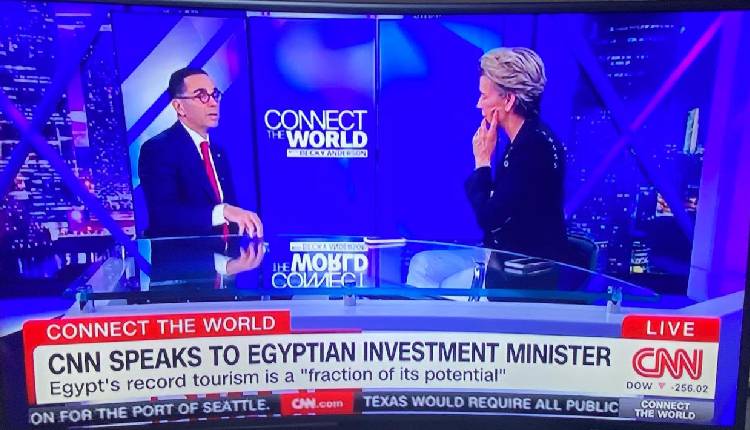Egypt’s net FDI reached a record $46.1 billion last year, a 361 per cent increase, driven by projects like Ras El Hekma and improved investment incentives, Minister of Investment and Foreign Trade Hassan El-Khatib announced in a CNN interview. El-Khatib reviewed Egypt’s economic reform trajectory and its impact on the lives of its citizens, as per a Cabinet statement.
El-Khatib highlighted the key pillars of the country’s economic reform programme, which include restoring macroeconomic stability, transitioning to market-based policies, and reinforcing investor confidence.
He noted that a major shift came with the Central Bank of Egypt’s (CBE) move from a fixed exchange rate regime to inflation targeting — a step he called essential for maintaining social stability and safeguarding purchasing power.
El-Khatib reported positive economic trends: real GDP grew by 3.9 per cent in the first half of FY2024/25, private sector investment increased by 80 per cent, foreign direct investment rose by 17 per cent, and non-oil exports went up by 33 per cent.
Furthermore, the budget deficit reduced to 6.5 per cent, while public debt declined to 85 per cent of GDP by June 2025, down from 96 per cent in June 2023, he told CNN.
He added that the government is expanding social protection programmes such as Takaful and Karama, increasing the minimum wage, and offering additional allowances to teachers, healthcare workers, and vulnerable groups.
Al-Khatib noted that the government has eliminated various non-tariff barriers, such as halal certification for dairy imports and acceptance of US standards for imported cars, to enhance trade and boost the competitiveness of Egyptian exports.
He also emphasised that the government has set a goal of reducing customs clearance time to just two days by the end of 2025, and reducing import and export time and costs by 75 per cent, the statement added.
The minister highlighted Egypt’s deepening economic ties with Africa through its membership in the African Continental Free Trade Area (AfCFTA) and COMESA, enabling duty-free access to vast regional markets.
The government launched a digital platform for investors to access 389 licences and approvals from 42 government bodies, streamlining the process and offering secure e-payment options, El-Khatib told CNBC.
El-Khatib revealed Egypt’s goal to increase private sector investment to 70 per cent by 2030. The plan includes boosting venture capital, raising startup funding from $500 million to $5 billion, and offering incentives and tax breaks to attract investors.
Attribution: Amwal Al Ghad English
Subediting: M. S. Salama


